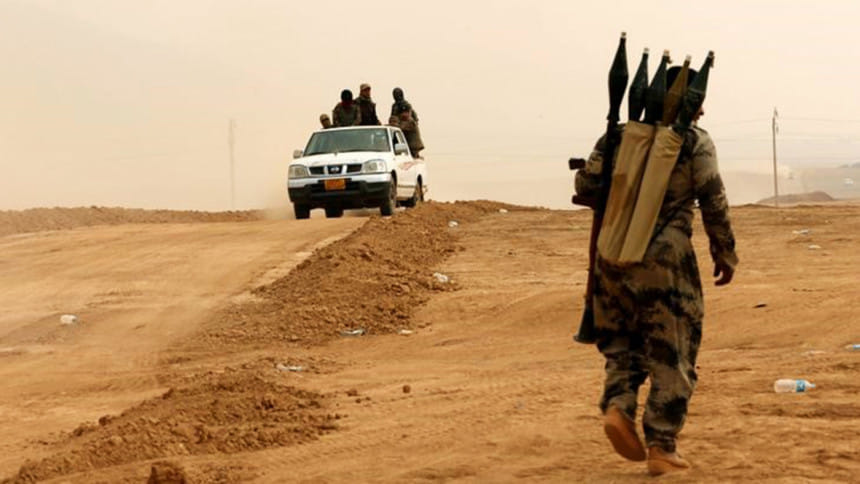Southeast Asia could be next ISIS battleground: Experts

As ISIS loses ground in Middle East, there are fears it will take its fight elsewhere, especially in Indonesia, Malaysia and Philippines.
Southeast Asia runs the risk of becoming the next battleground for the Islamic State in Iraq and Syria (ISIS) as the militant group loses territory in the Middle East.
Experts and local authorities say they fear that ISIS, which has long had its eye on the region, will order its fighters from Indonesia, Malaysia and the Philippines to take the fight back home.
The Philippines was flagged by a report by the Institute for Policy Analysis of Conflict (IPAC), which underlined the rising threat of "pro-ISIS" groups in Mindanao, a cluster of islands in the southern Philippines near Borneo island.
The think-tank, headed by Jakarta-based security analyst Sidney Jones, said the Philippines is important because as far as the ISIS leadership is concerned, it is the extension of the caliphate in the region.
"Over the last two years, ISIS has provided a new basis for cooperation among extremists in the region," she said. "That cooperation could take on a new importance as ISIS losses in the Middle East increase and the incentive to undertake violence elsewhere rises."
She added more fighters could also be attracted to the Philippines as the jihad of choice as ISIS is getting pushed back in Syria and Iraq.
"As getting to Syria becomes increasingly difficult for Southeast Asian fighters, Mindanao may be the next best option," said Jones. "The difference is that it's easier to get home."
Previous reports indicated there are an undetermined number of Indonesian ISIS loyalists who have travelled to Mindanao to fight with groups such as Abu Sayyaf recently. ISIS has named Abu Sayyaf leader Isnilon Hapilon as emir of its Southeast Asia campaign.
Security analysts say the region's long history of militancy and rising number of extremist groups adopting ISIS ideology make it attractive to the extremist network.
The groups include the Jemaah Islamiah and Jemaah Anshar Khilafah terror networks, as well as the Abu Sayyaf, Ansarul Khilafah Philippines, the Maute Group, and Bangsamoro Islamic Freedom Fighters.
The IPAC report also highlighted that while ISIS has deepened cooperation among extremist groups in Southeast Asia, "most law enforcement agencies retain a strongly national orientation, without in-house expertise on groups outside their own borders".
"At a time when an accurate assessment of the security threat in Indonesia or Malaysia may depend in part on understanding developments in the Philippines, this gap needs to be filled," it said. "It is especially urgent because in the short term, ISIS losses in the Middle East could increase the incentive to undertake acts of violence at home."
Southeast Asia has seen a rise in ISIS-linked violence this year, starting with the brazen attack by four militants in Jakarta early this year.
On Tuesday, a third man was jailed for eight years for his role in the January 14 strike, which left eight people, including the four perpetrators, dead.
Ali Makhmudin, 41, who belongs to a terror cell in Central Java, was found guilty of supplying steel pipes for homemade bombs used that day. Court documents showed that he was told by one of the attackers that the pipes would be used as casings for the bombs. He was said to have been paid about 1 million rupiah ($77) for the job.
His sentencing comes after bombmaker Dodi Suridi, 23, was sentenced to 10 years in jail last week for helping to make the bombs used in the same attack.
Another militant, Ali Hamka, 47, was jailed for four years, after he was found guilty of trying to acquire firearms for the strike.
The Straits Times understands that the three men are among at least 17 suspects to have been charged in connection with the Jakarta attack, for which ISIS had claimed responsibility.
Copyright: The Straits Times/Asia News Network

 For all latest news, follow The Daily Star's Google News channel.
For all latest news, follow The Daily Star's Google News channel. 



Comments